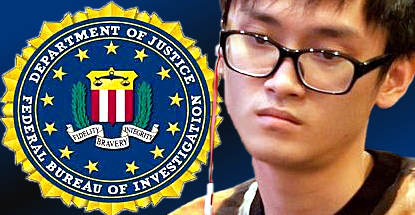 Wei Seng ‘Paul’ Phua’s son Darren has reached a plea deal with federal prosecutors over illegal online betting charges filed last year.
Wei Seng ‘Paul’ Phua’s son Darren has reached a plea deal with federal prosecutors over illegal online betting charges filed last year.
On Thursday, the Las Vegas Review-Journal reported that US District Judge Andrew Gordon has set a hearing for 10am on Friday at which 23-year-old Darren Phua will plead guilty to a single misdemeanor charge of transmission of wagering information.
In exchange for his plea, Phua will be allowed to leave the country. The Malaysian-born Phua has been under house arrest in Las Vegas since last summer when he, his father and six other individuals were accused of running an illegal online sports betting operation out of three luxury villas at Caesars Palace.
The LVRJ’s sources said the homesick Phua has also agreed to forfeit $125k in cash plus electronic equipment seized during the July raid on the villas. Federal Bureau of Investigation agents that led the raid claim to have found incriminating text messages on Darren Phua’s phone indicating that Paul Phua had bribed Macau police to obtain his release following a major sports betting bust in Macau several weeks prior to the Vegas raid.
Darren’s plea leaves just his father still fighting the charges. Five of the other six defendants have already made their own deals with prosecutors while charges against another defendant were dropped. Darren is expected to receive the same five-year probationary sentence the other five plea-dealers received.
Paul Phua’s court date is set for April 13. The feds’ case against him was dealt a major blow last month when US Magistrate Judge Peggy Leen recommended tossing the bulk of the evidence the FBI had used to obtain their “fatally flawed” search warrants, which she said relied on “false and misleading statements.” Prosecutors, who previously stated that their case would be seriously jeopardized by their inability to use this evidence, are appealing Leen’s ruling.
The case has attracted mainstream media attention due to the tactics used by the FBI, who switched off internet service to the villas, then sent in agents disguised as tech support equipped with hidden body cameras. Civil liberty watchdogs have criticized these tactics as a violation of Fourth Amendment protections against unreasonable search and seizure.
